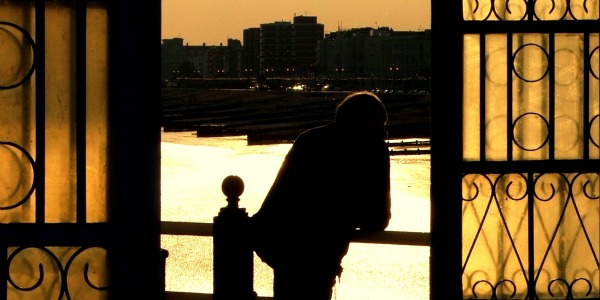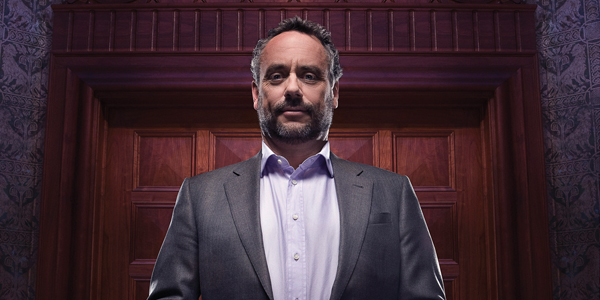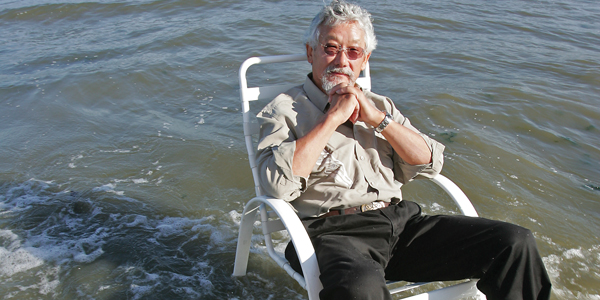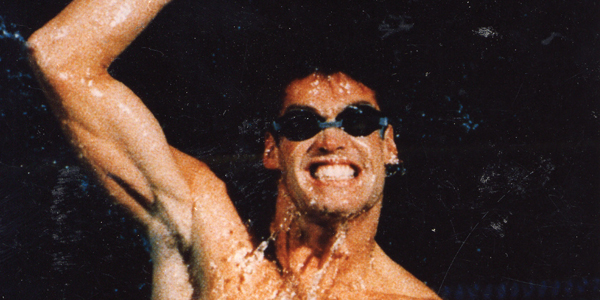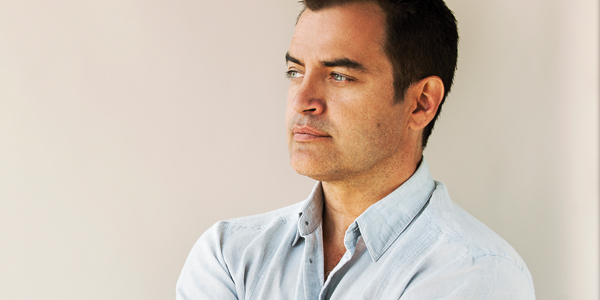A couple of nights ago, a strong wind blew through the mountainous region where I live. We’re used to a lot of weather here – snowstorms that close schools, rains that wash out roads, and winds that topple trees. A few times each year we lose electricity, sometimes for merely hours, but other times for several life-altering days. And it’s not just the lights and appliances that go down; it’s also the television and internet cable. And since our water is drawn from our own well by an electric pump, the water (and toilets) go too.
It’s amazing what we take for granted in the 21st century. When the power sputters to a halt, so does life as we know it.
On this most recent stormy night my husband and I were driving home from the movies. We were only a few feet from turning down the driveway when a huge pine tree was uprooted by the wind. It fell right into and knocked over a utility pole – a pole that also held a transformer (you don’t know what that is? Neither did I until it exploded in front of our car, burst into flames, and lit the woods on fire.) Basically, a transformer is a device that takes in electricity at a higher voltage, lets it run through lots of coils wound around an iron core, and then transforms it into a voltage we can use in our homes.
Are you still with me? I promise this science lesson is leading somewhere.
Next time you’re out and about – in the city or the country – look up at the wires and follow them until you get to a pole with a square-shaped object. That’s the transformer. That innocent-looking metal box you pass by every day is a bomb waiting to explode. Forget about the Times Square bomber – there are potential terrorists suspended on poles all around us.
I am not sharing this information to frighten you, but merely to illustrate a point I would like to make:
Our everyday humdrum life is wildly unstable, almost improbable, and therefore a miracle. Just the fact that most of us make it from birth to old age without being snuffed out prematurely is incredible. I sometimes imagine myself as a very old lady, lying on my deathbed, astonished that I made it there alive!
Life’s instability has seemed particularly cruel over the past few years. The earthquake in Haiti is estimated to have killed as many as 250,000 people, injured 300,000 more, and left more than 1,000,000 homeless. The magnitude-8.8 earthquake that rocked Chile last February was violent enough to move the entire city of Concepcion at least 10 feet to the west. Smaller rumblings of the Earth’s crust have occurred in Indonesia, Mexico, Turkey, Taiwan, China, and even Chicago in the past few months. Add to that terrorist acts, wars, genocide, nuclear proliferation, rising temperatures, melting icecaps. Does it seem that things are becoming less and less stable here on Planet Earth?
I think the answer to that question is both no and yes. Let’s start with the “no” part of the answer: No, I don’t think things are less stable here on Planet Earth. According to the U.S. Geological Survey, the earth usually has one magnitude-8 or higher earthquake per year, some 17 quakes between 7 and 7.9, and roughly 132 earthquakes a year with a magnitude of between 6 and 6.9. Thus, the recent earthquakes are not abnormal in frequency, scientists say, but have received more attention because of the loss of human life and the almost constant flow of news around the world.
And what about terrorism, war, and global hostilities in general? Dr. Steven Pinker, a professor in the Department of Psychology at Harvard writes, “We are probably living in the most peaceful moment of our species’ time on earth.”
Sound improbable? Pinker gives examples of much more brutal periods of history, including sixteenth-century Paris, when a popular form of entertainment was cat-burning, whereby a cat would be lowered by a sling into a fire. The spectators, including kings and queens, would shriek with laughter as the animals howled with pain and burned to death.
“Today,” says Pinker, “such sadism would be unthinkable in most of the world. This change in sensibilities is just one example of perhaps the most important and most underappreciated trend in the human saga: Violence has been in decline over long stretches of history. In the decade of Darfur and Iraq, and shortly after the century of Stalin, Hitler, and Mao, the claim that violence has been diminishing may seem somewhere between hallucinatory and obscene. Yet recent studies point to exactly that conclusion.”
Now, how about environmental instability? That has to be getting worse, right? There’s overwhelming evidence that global warming brought on by too many human beings burning too much fossil fuel and taking up too much room on our crowded planet is changing the nature of life on Earth. But before we get into that, may I just remind you that massive changes to the Earth’s climate and terrain and species have occurred throughout the planet’s history: ice ages, volcanic eruptions, species loss, continental drift, and even collisions with asteroids, one of which may have wiped out the dinosaurs.
So, that’s the “no” part of my answer to the question, “Is life becoming less and less stable?” Now for the “yes” part: Yes, I do think that we humans have added a new and significant layer of instability to the already basic tenuousness of life. There are now billions of us, living closer together, creating ever-more deadly toxins and weapons, and using up the planet’s precious resources. So an earthquake, or a drought, or a war can affect many more people.
We have altered the Earth’s ecosystems so radically that life is no longer possible for many species of animals, insects, and plants. If we keep gobbling up habitats, stripping the forests, thinning the atmosphere, and polluting the water, life for humans may go the way of the dinosaurs. Former president of the Czech Republic, Vaclav Havel, sees our times as a test: “Either we will achieve an awareness of our place in the living and life-giving organism of our planet, or we will face the threat that our evolutionary journey may be set back thousands or even millions of years. That is why we must see this issue as a challenge to behave responsibly and not as a harbinger of the end of the world.” That’s a test I pray we pass.
There’s another reason why life may feel a tad more out of control these days: Unlike our ancestors, we seem to think things should be controllable.
We’ve become accustomed to being warm in the winter and cool in the summer; if we get sick, we expect to get better; we eat three easy meals a day, and rely on quick transportation and instant communication. But these are all relatively new developments in the march of human history. A couple of centuries ago there were no such things as central heat, AC, antibiotics, supermarkets, automobiles, or computers. In 1903 – a little more than a hundred years ago – the United States bureau of statistics listed these facts about life in America:
- 8 percent of homes had a telephone.
- There were 8,000 cars in the U.S. and 144 miles of paved roads.
- 14 percent of homes had a bathtub.
- Most American women washed their hair once a month and used borax or egg yolks for shampoo.
- 90 percent of all U.S. physicians had no college education. Instead, they attended medical schools, many of which were condemned by the government as “substandard.”
- The average life expectancy in the United States was 47.
While it’s much more pleasant to live with the conveniences we have become accustomed to, you have to admit they can create a false sense of security. We’re horrified when “acts of God” occur – earthquakes, floods, disease, death.
We take these things personally; we want to blame someone for not protecting us even when there’s no one to blame but the nature of life itself. No matter how many advances humanity makes, no matter how much money or power an individual has, we will always be fragile creatures, living on a tiny planet, supported by a sun that will burn itself out, in an infinite, mysterious universe. Nothing stable about any of that!
Is there a way to live with the knowledge of our basic instability without turning into an anxiety-ridden fraidy cat? Yes, there is. Throughout the ages, wise people – philosophers, spiritual teachers, religious leaders, psychologists, quantum physicists – have taught that although the outer world is unstable, there is an equally real and accessible inner world of peace and tranquility.
The Buddhists teach a form of meditation called Shamata, which translates as “tranquil abiding.” It is a stabilizing form of meditation that helps one remain calm and centered in the midst of the chaos and instability of life. Every religious tradition and spiritual path offer equally masterful methods for developing inner strength, peace, and stability. I highly recommend developing a spiritual practice. Most of us go to the gym or take a walk or do yoga in order to develop outer strength. It’s just as important and possible to strengthen our inner muscles – our soul muscles. Below are two exercises I have developed that can help you touch into your own inner strength and fearless spirit.
Exercise ONE: Fanning the Embers of Fearlessness
1 Carve out 5 – 10 minutes when you can be alone.
2 Close the door, sit in a chair or on the floor, close your eyes, and come into silence.
3 Imagine a broom sweeping out thoughts, fears, and anxieties from your mind. Then sweep the cave of your heart until it is clear, spacious, and open.
4 Now, in the center of that space, find a glowing ember of OK-ness, of faith, of fearlessness. Even if it is the tiniest light, see if you can find it.
5 Inhale slowly, and gently blow on that ember with your exhalation. Make a swishing sound with your breath, and imagine the ember glowing and getting stronger and brighter.
6 As you blow on the ember, feel the power of your breath spreading warmth through your whole body/mind/soul, filling you with the light of optimism and faith. Feel the warmth relaxing you, melting away your negativity, fear, blame, victimhood. Do this with three breaths.
You can use this exercise when you are going about your day at work and home. Just one out-breath can remind you of your natural inner strength that is always available, always waiting.
Back to the power outage in my hometown. I’m on day three of the neighborhood blackout: I am writing this in front of my fireplace, in the evening, by the light of my computer. The little blinking icon at the top of my screen indicates that I have 16% of my battery power left. I better wrap this article up. It’s only 9 p.m., but we’ve gotten into bed early the past two nights and read by the light of a candle. Not only because it’s sort of romantic, but also because there’s nothing else to do! No email, no television, no radio. And early to bed means more hours of sleep – something we need. Without the symphony of electrical appliances, the furnace, and the white noise machine we use to drown out the other sounds, the house is quieter; the whole world seems more still.
Last night before heading to bed, I slipped outside to pee under the stars. Squatting on the wet ground, gazing up at the star-studded sky, a strange feeling came over me. Something switched in my consciousness – the way it sometimes does when I meditate or pray.
Instead of feeling small and scared, I felt free. I let my soul drift peacefully in the vast universe, my sails filled with the breeze of eternity. It was as if I was looking down on our precious earth. Once again, I realized that our sun is a mass of combustible gasses; that our planet is a temporary miracle held together by gravity and grace; and that while we are not promised physical security, we can still perceive the eternity of the soul and relax into its mystery. I felt at peace with the way things are, and at the same time, I wanted to do what I could to protect this beautiful earth and its miraculous creatures.
I sort of hope the power stays out for a few more days.
Exercise TWO: Daily Quote
Here’s something I like to do when I am working on a particular issue in my life. I scout around for as many wise quotes I can find; I handwrite or type them in a nice large font; and then I print them out and cut them into little strips. I put the wisdom snippets in a basket and pick one each day, put it in my pocket or purse and use it throughout the day to reorient myself. You can do that around the theme of fear and fearlessness with the quotes listed below.
Struggling souls catch light from other souls who are fully lit and willing to show it. –Clarissa Pinkola Estes
Fearlessness is not exclusive, it belongs to neither heroes nor saints alone but to all of us. It is a mood of which all the world is capable. A mood, a species of beauty, and perhaps also a birthright. –Susan Griffin
Nothing in life is to be feared. It is only to be understood. –Marie Curie
One has really nothing in the world to fear. One becomes fearless when one understands the power of the soul. –Mahatma Gandhi
The purpose of life is to live it, to taste experience to the utmost, to reach out eagerly and without fear for newer and richer experience. –Eleanor Roosevelt
I want to know God’s thoughts… the rest are details. –Albert Einstein
For a long time it had seemed to me that life was about to begin – real life. But there was always some obstacle in the way, something to be got through first, some unfinished business, time still to be served, a debt to be paid. Then life would begin. At last it dawned on me that these obstacles were my life. –Alfred D’Souza
Man cannot discover new oceans unless he has the courage to lose sight of the shore. –Andre Gide
True fearlessness is not the reduction of fear, but going beyond fear. –Chögyam Trungpa
Curiosity will conquer fear even more than bravery will.–James Stephens
The whole world is a very narrow bridge. And the most important thing is to not be afraid. –Rabbi Nachman of Breslov
Fear always springs from ignorance. –Ralph Waldo Emerson
So many of our dreams at first seem impossible, then they seem improbable, and then when we summon the will, they soon become inevitable. –Christopher Reeve
You were born with the right to love, to enjoy, and to share your love. You are alive, so take your life and enjoy it. –Don Miguel Ruiz
In morals what begins in fear usually ends in wickedness; in religion what begins in fear usually ends in fanaticism. Fear, either as a principle or a motive, is the beginning of all evil. –Anna Jameson
Too many of us are not living our dreams because we are living our fears. –Les Brown
You gain strength, courage and confidence by every experience in which you really stop to look fear in the face.
–Eleanor Roosevelt
Feel the fear and do it anyway. –Susan Jeffers
As far as we can discern, the sole purpose of existence is to kindle a light in the darkness of being. –CG Jung
How very little can be done under the spirit of fear. –Florence Nightingale
To conquer fear is the beginning of wisdom. –Bertrand Russell
Fear makes strangers of people who should be friends. –Shirley Maclaine
Peace is all around us. Once we learn to touch this peace we will be healed and transformed.
It is not a matter of faith; it is a matter of practice. –Thich Nhat Hanh
First you jump off the cliff and you build wings on the way down. –Ray Bradbury
Develop an inner candle flame that won’t flicker even when the worst goes before you. –Wayne Dyer
One of the greatest discoveries a man makes, one of his great surprises,
is to find he can do what he was afraid he couldn’t do.–Henry Ford
To fear love is to fear life. –Bertrand Russell
One day, my soul just opened up and I decided I was good and ready! –Iyanla Vanzant
It was a high counsel that I once heard given to a young person: Always do what you are afraid to do. –Ralph Waldo Emerson
Unless you’re prepared to take risks that may result in failure, you’ll you never really know what you’re capable of. –Kim Campbell
Where the fear is, happiness is not. –Seneca
Acknowledging fear is not a cause for depression or discouragement. Because we possess fear, we also are potentially entitled to experience fearlessness. –Chögyam Trungpa
Courage is not the absence of fear, but rather the judgment that something else is more important than fear. –Ambrose Redmoon

